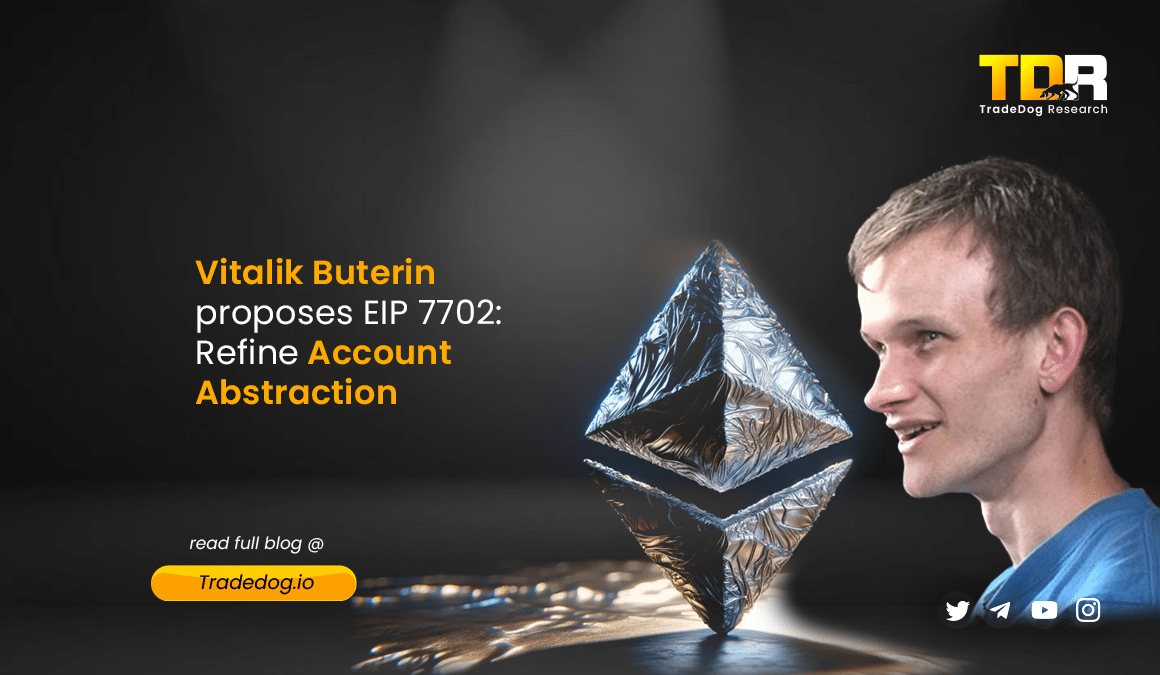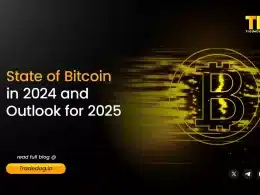Quick Links
Ethereum Improvement Proposals (EIPs) are the backbone of the Ethereum network’s ongoing development. One of the latest proposals, EIP-7702, aims to address limitations in how users interact with the network by refining account abstraction, a concept that has the potential to significantly improve user experience.
Limitations of Externally Owned Accounts (EOAs)
Currently, Ethereum users interact with the network through externally owned accounts (EOAs), which are simple accounts tied to private keys. While they provide a basic level of functionality, EOAs have limitations:
Limited capabilities: EOAs offer basic functionalities like transfer tokens to other EOAs and initiate transactions that trigger another smart contract transaction.
Security vulnerabilities: Private keys used with EOAs are a single point of failure. If compromised, hackers can steal all the funds associated with the account.
Quick Recap of EIP-3074
To address these limitations, EIP-3074 was proposed as a way to enhance the functionalities of EOAs. It introduced two new opcodes, AUTH and AUTHCALL, with the former allowing EOAs to authorize a given smart contract to perform actions on their EOA’s behalf while the latter allowing an authorized smart contract to use AUTHCALL to perform transactions for the EOA.
The proposal introduced a third-party transaction sponsorship where someone could pay transaction fees on behalf of another user, improving user experience. Another important feature is users could group multiple transactions into a single one, reducing transaction fees. With this, they seek to make Ethereum more accessible to a wider range of users who may not be familiar with the concept of gas fees or have access to ETH.
However, EIP-3074 had its drawbacks:
- Security concerns: The delegation process raised security questions. Malicious smart contracts, if authorized, could potentially drain user funds.
- Hard fork requirement: Implementing EIP-3074 required a hard fork, a significant network upgrade that can be disruptive.
- Limited compatibility: EIP-3074 did not integrate well with the emerging ERC-4337 standard for smart contract wallets.
Understanding EIP-7702
EIP-7702 by Vitalik Buterin and co-authors builds upon the foundation laid by EIP-3074 while addressing its shortcomings. It introduces a new type of transaction that allows EOAs to temporarily act as smart contract wallets during a transaction. This temporary transformation enables EOAs to perform actions while retaining their original state after the transaction is complete.
Here’s a breakdown of the key improvements introduced by EIP-7702:
- Enhanced security: EIP-7702 avoids the permanent delegation aspect of EIP-3074, mitigating the risk of malicious contracts stealing funds.
- Soft fork compatibility: Unlike EIP-3074, EIP-7702 can potentially be implemented through a soft fork, a less disruptive network upgrade.
- Improved compatibility: EIP-7702 is designed to be compatible with the ERC-4337 standard, paving the way for a more unified approach to account abstraction.
- Quantum resistance: EIP-7702 is considered more quantum resistant than EIP-3074, offering better protection against future advancements.
EIP-7702 achieves these improvements by introducing:
- New Transaction Type: EIP-7702 introduces a new transaction type with fields for contract code and a signature. During the transaction, the signer’s account code is temporarily replaced with the provided contract code. This code dictates how the transaction is executed. Once the transaction is complete, the account code reverts back to empty.
- Function Calls Instead of Opcodes: Instead of introducing new opcodes like EIP-3074, EIP-7702 defines functions to be called within the transaction. This approach offers more flexibility and avoids the need for a hard fork.
Community Reaction
The Ethereum community has reacted positively to EIP-7702. Some see it as a crucial step towards wider adoption of smart contract wallets, offering enhanced security features and greater functionality. Others point out the potential for improved interoperability with other blockchains due to its compatibility with the ERC-4337 standard. This bodes well for the potential of EIP-7702 to address long-standing limitations and pave the way for a more secure and versatile Ethereum ecosystem.
Source – twitter.com/hayden.eth
The Road Ahead
While EIP-7702 presents a promising path forward, there are still some considerations for its adoption:
- Community Consensus: The Ethereum community needs to reach a consensus on implementing EIP-7702. This will involve discussions, testing, and potential revisions to the proposal.
- Wallet Provider Integration: Wallet providers (like MetaMask) will need to update their software to support EIP-7702 transactions. This will be crucial for user adoption.
- Smart Contract Security: The security of the smart contract code used within EIP-7702 transactions remains a critical factor. Users will need to be cautious about the code they execute and ensure it comes from a trusted source.
Despite these challenges, the potential benefits of EIP-7702 are significant. If implemented successfully, it can usher in a new era for Ethereum, empowering users with a more secure and flexible experience while laying the groundwork for a future built on advanced account abstraction.









